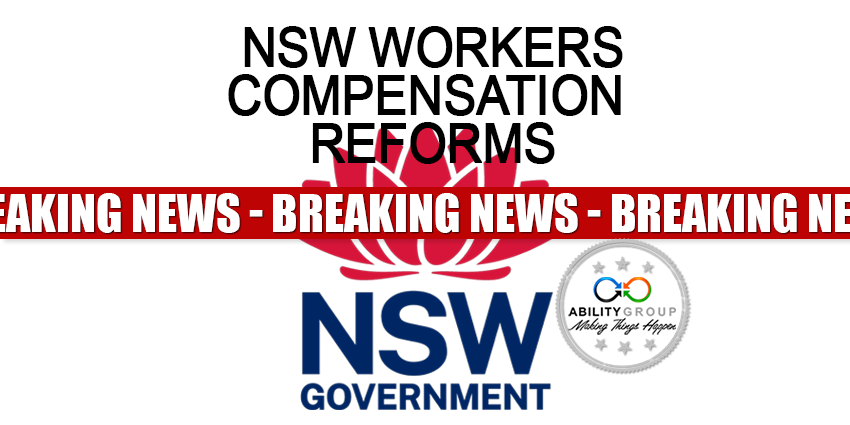The NSW Government has introduced significant NSW workers compensation reforms, aiming to modernise protections for employees while ensuring sustainability for businesses. We summarise NSW Government’s key workers compensation Protecting Workers Compensation for Future Generations changes and how they will directly impact employers, insurers, and workers across the state. and importantly highlight What It Means for Your Business.
What the Changes Mean for Businesses
Further to our breaking news NSW Workers Compensation Reforms on 19 March 2025, the key Changes in the Workers Compensation Legislation Amendment Bill 2025:
1. Stronger Focus on Psychological Injury Prevention
The reforms address the rising costs and challenges associated with psychological injury claims. Businesses will need to adapt to new prevention measures, including:
- Expanded SafeWork NSW oversight – with over 50 new inspectors specialising in psychological injury prevention
- Workplace Mental Health Package – provides $344 million in funding for early intervention and support services
2. Expedited Claims Process for Bullying and Harassment Cases
Workers experiencing psychological injuries due to bullying or harassment will now have access to an 8-week expedited claims assessment process, eliminating the previous requirement for a formal determination by the Industrial Relations Commission (IRC).
3. Changes to Compensation Eligibility
The reforms introduce a gradual increase in the Whole Person Impairment (WPI) threshold for long-term compensation:
- 25% WPI from October 2025
- 30% WPI from July 2026
Additionally, commutations will allow workers with a WPI of 30% or below to access a lump sum before their weekly payments cease.
4. Legal Cost Reductions and Compliance Enhancements
To streamline the system and reduce unnecessary legal expenses, new requirements ensure that scheme-funded lawyers must act in the interests of workers and demonstrate a reasonable prospect of success before proceeding with claims.
5. Expanded Workplace Health and Safety Powers
The IRC will now have stronger jurisdiction over workplace health and safety complaints, reinforcing employer responsibilities in preventing psychosocial hazards.
What This Means for Businesses
Employers must proactively adjust workplace policies to align with these reforms, ensuring compliance with new psychological injury prevention measures and compensation eligibility criteria. Businesses should also prepare for potential premium adjustments as the system stabilises under the new framework.
At ABILITY GROUP, we are committed to helping our clients navigate these changes effectively. If you have any questions about how these reforms impact your business, contact our team for expert guidance.
Further Information
Source: NSW Government
Title: Protecting workers compensation for future generations
Read Time: 5 minutes

